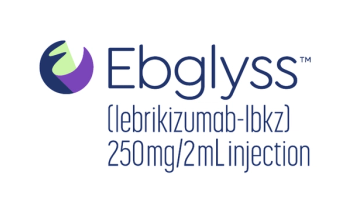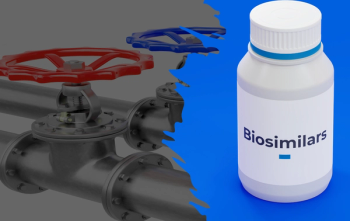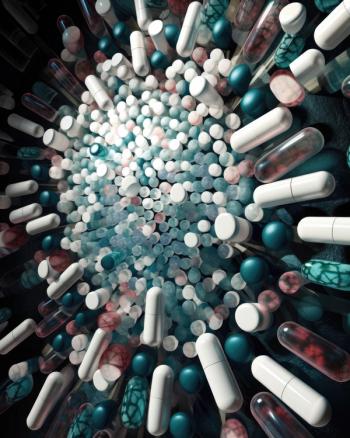
- MHE September 2022
- Volume 32
- Issue 9
Are Interchangeable Biosimilars Better?
Some companies are using the interchangeability designation as a marketing ploy.
Just how similar are biosimilars to their brand-name “originators”? That is a question that continues to hang over biosimilars and impede their acceptance into everyday healthcare. Congress and the FDA may have unwittingly fed the doubts by creating the interchangeable designation. Some manufacturers contend there is a perception, encouraged by the makers of interchangeable biosimilars and their marketing tactics, that interchangeables are somehow “better biosimilars.”
Biosimilars are certified by drug regulators, such as the FDA in the U.S. and the European Medicines Agency in Europe, to be as safe and effective as their reference products. Interchangeable biosimilars are no different from biosimilars, except that when a physician prescribes an originator biologic, pharmacists can give the patient an interchangeable biosimilar without having to consult the physician, subject to individual state laws.
Adding to the confusion is that interchangeable biosimilars undergo switching studies to ensure that patients who go back and forth between the originator agent and the interchangeable agent won’t experience any difference in outcomes.
Companies such as Alvotech and Biocon Biologics are using the interchangeable designation as a marketing ploy to set their biosimilars apart from others. The tactic is a concern for manufacturers such as Samsung Bioepis that opted to create plain-Jane biosimilars without the interchangeable designation.
“It is increasingly urgent that semantics are clarified,” lead authors Joseph P. Park, Ph.D., senior manager of regulatory affairs for Samsung Bioepis, and Gillian Woollett, M.A., vice president and head of regulatory strategy and policy at the company, wrote in an opinion piece published in BioDrugs in June. Their central argument is that interchangeability “is a legal distinction, not a clinical one.”
The other authors of the piece also work for Samsung Bioepis, which has a major stake in the interchangeable debate. The South Korean company has developed a biosimilar to Humira (adalimumab) called Hadlima (adalimumab-bwwd) that is not designated as interchangeable.
The interchangeable issue will come to a head next year when the Humira market will be flooded with biosimilars, both interchangeable and regular. As many as 11 Humira biosimilars may enter the market in 2023.
Marketing appeal
Although interchangeables can be substituted more freely at the pharmacy counter, doctors (not pharmacists) still can substitute regular biosimilars as they wish and use them as indicated by the FDA or off label. “For every FDA-licensed biosimilar, physicians and their patients can have as much confidence as they historically have had with the originator product,” Park and Woollett wrote in BioDrugs.
Interchangeables have not been around that long. Semglee (insulin glargine-yfgn) was approved as the first interchangeable biosimilar in July 2021. Biocon Biologics specifically sought that designation so it could rebrand Semglee and strengthen its marketing appeal.
Boehringer Ingelheim’s Humira biosimilar, Cyltezo (adalimumab-adbm), received an interchangeable designation in October 2021, and Alvotech, an Icelandic company, may get one for its Humira biosimilar, named AVTO2 for now. The FDA is currently reviewing the company’s application for AVTO2, and the biosimilar could hit the market mid-2023. That would pit two interchangeable Humira biosimilars against the rest of the Humira biosimilar field, although Pfizer, Amgen and Samsung Bioepis have said they also intend to seek interchangeable status for their biosimilars. Because they are coming on the market during the same year, the Humira biosimilar market in 2023 and beyond will be a good test whether the interchangeable designation will be an advantage for biosimilars.
Interchangeability in other countries is not an added regulatory distinction, according to Park, Woollett and their colleagues. “European Union regulators have stated that they consider all their approved biosimilars to be interchangeable as a clinical matter,” they wrote.
North of the border
Public health authorities in Canada, impatient with the slow pace of biosimilar adoption, have forcibly switched patients to biosimilars unless their doctors obtain medical exemptions. Canadian officials consider biosimilars to be equal to reference products, period, and therefore the issue of interchangeably is moot.
As Canadian experience has shown, physicians can be hesitant about adopting biosimilars, and many tend to hold out for as much clinical data as they can get. This tendency gives an edge to companies that invest in additional switching studies so their biosimilar can qualify for an interchangeable designation.
However, many biosimilar experts argue that biosimilar comparability to reference products is demonstrated best by analytical testing, such as laboratory pharmacokinetic and pharmacodynamic studies. Clinical studies conducted with human subjects are less precise, they say. Occasionally, biosimilar studies conclude that biosimilars are not always close copies of reference products. Sometimes these differences are chalked up to the nocebo effect — when people experience adverse effects and other negative consequences from a medication (or a placebo) that they believe is inferior or possibly harmful.
A study published in the journal Skin Health and Disease in late 2021 will not help the case for those arguing for biosimilars. The results showed that patients who switched to the Humira biosimilar Amjevita (adalimumab-atto) were more likely to have exacerbated symptoms of psoriasis. The authors wrote that 30% of patients receiving Amjevita had increased psoriasis severity and lower quality of life. They said outcomes returned to normal when patients restarted Humira.
However, the study was retrospective, conducted at a single center and unblinded, all of which cast some doubt on the validity of the findings. Amjevita, an Amgen product, is scheduled to be the first Humira biosimilar to come on the U.S. market in 2023. It does not have the interchangeable designation.
The FDA has worked to educate the public on the differences between biosimilars and interchangeable biosimilars, and more guidance is on the way. Sarah Yim, M.D., director of the Office of Therapeutic Biologics and Biosimilars at the FDA’s Center for Drug Evaluation and Research, outlined some of the agency’s plans in a talk in late 2021. She said manufacturers also need help understanding what happens to interchangeable designations when the method of administration changes. Such changes could raise questions about whether interchangeable biosimilars are still interchangeable with reference products if reference products are delivered another way.
Tony Hagen is a medical, business and environmental editor and writer in Florence, New Jersey.
Articles in this issue
Newsletter
Get the latest industry news, event updates, and more from Managed healthcare Executive.























